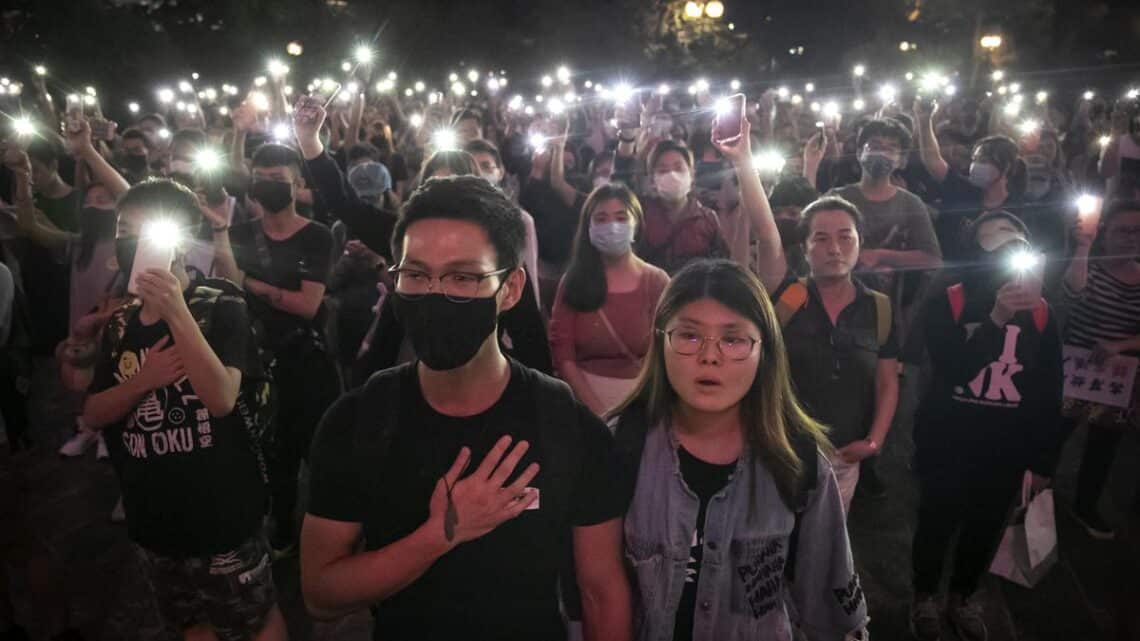[ad_1]

Demonstrators hold their cellphones aloft as they sing “Glory to Hong Kong” during a rally at Chater Garden in Hong Kong, on October 26, 2019.
| Photo Credit: AP
Hong Kong’s government said on June 6 that it was seeking a court order to prohibit people from broadcasting or distributing the protest song “Glory to Hong Kong” after it was played as the city’s anthem at several international sporting events in the past year.
In a statement, the Department of Justice said it had applied for an injunction on June 5 to prohibit unlawful acts relating to the song, which became an unofficial anthem for the 2019 pro-democracy protests. It is awaiting the court’s direction and for a hearing date to be fixed.
The government said the lyrics of the song contained slogans that have been ruled by the court as “constituting secession” and that it was highly likely that the song would continue to be widely used given that it had been mistakenly played as Hong Kong’s anthem instead of China’s national anthem, ‘March of the Volunteers’.
Also Read | The tale of Hong Kong, a city torn between two systems
In 2020, the government outlawed the protest slogan ‘Liberate Hong Kong, revolution of our times’ for being secessionist and subversive. The lyrics of ‘Glory to Hong Kong’ contain parts of the slogan.
Hong Kong wanted to prohibit anyone from “broadcasting, performing, printing, publishing, selling, offering for sale, distributing, disseminating, displaying or reproducing in any way” the protest song, or any adaptations of it that are substantially similar to the original in melody and lyrics.
In particular, the injunction targets anyone who uses ‘Glory to Hong Kong’ to advocate for the separation of Hong Kong from China, such as inciting others to commit secession or sedition, as well as anyone who uses the song to suggest that Hong Kong was independent or to insult the national anthem.
The injunction also seeks to restrain those who allowed others to commit similar acts.
In a statement attached to the injunction, the HKSAR Government said it “respects and values the rights and freedoms protected by the Basic Law [including freedom of speech], but freedom of speech is not absolute”.
“The application pursues the legitimate aim of safeguarding national security and is necessary, reasonable, legitimate, and consistent with the Bill of Rights,” the statement read.
[ad_2]












